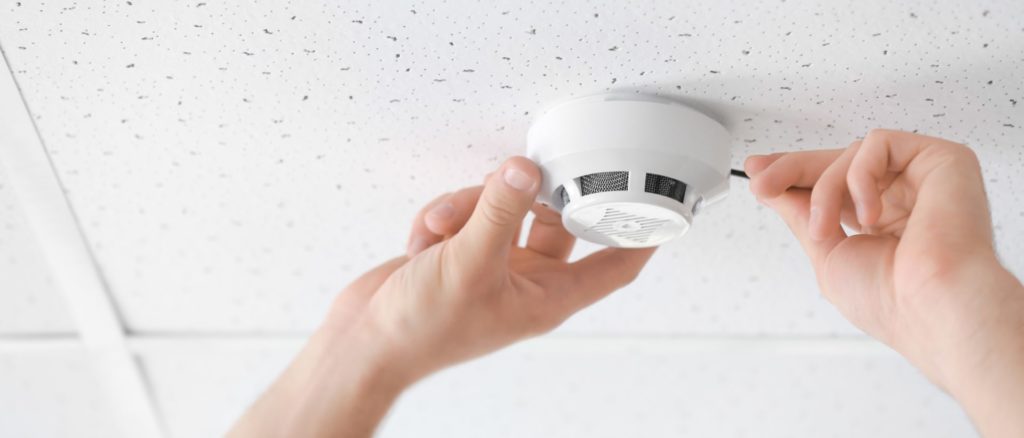In 2019, a fire protection company in Alberta was charged a total of $300,000 for sending uncertified technicians to inspect fire safety systems on their behalf. Some employees and customers were also charged for working for and with the uncertified company.
The same year, a Toronto fire protection company was fined $67,500 for failing to inspect and repair their customers’ systems in compliance with the Fire Code.
Two different provinces, same issue — failing to perform Fire Code compliant services.
Hiring a fire safety company is not a guarantee of your protection. You need to do your due diligence as well to ensure you’re working with the right people.
These are what trained and certified technicians bring to the table:
1. Fire Code Compliance
Certification is a must. There is no way around it. Your fire safety system isn’t your cup of cappuccino that may be done by a barista who either learned from experience or underwent professional training.
Technicians SHALL have an up-to-date certification for their services to be valid.
And again, we reiterate this — manufacturer certifications should be issued by the company they currently work with.
The technician’s training and certification are highly dependent on the company. Those that are not manufacturer-certified can’t certify their employees as well. And even if the company is certified, not everyone is willing to invest their resources on people who might be off to their next employer when opportunities arise.
However, this decision reflects how they trust their people and value their customer’s safety.
If a company decides not to certify their staff in fear of employee turnover, then it shows that they are also willing to risk your safety and their relationship with you for the sake of maximizing returns. The moment this happens is the moment your business loses its protection.
The worst part? This risk will only be realized when you’re faced with fire and what you believed to be your protection becomes your liability.
2. A Specialized Knowledge
Naturally, individuals with proper training and certifications are more adept at delivering manufacturer-specific services. This means when they arrive at your doorstep, they know exactly what to look for and how to address the issues.
This specialized knowledge is the difference between “I’ll ask someone for answers and get back to you” and “This is what you need to do”.
Technicians with a general knowledge on fire safety equipment do not know the complexities of systems from different manufacturers. While they can address common issues, they will likely miss the intricacies of your suppression system — the parts, special bulletins, and other requirements unique and specific to the brand you use.
So yes, you might pass the inspection or complete an installation but the extent to which these have been properly installed and inspected is not guaranteed.
3. Direct Access to the Manufacturer
Latest bulletins, warranty recalls, and other news pertinent to the use and service of fire safety systems can only be acquired through direct communication with the manufacturer. This communication is limited only to certified companies and their technicians.
If your technician is knowledgeable but not certified, then his knowledge can be outdated and irrelevant. Consequently, you might have a suppression system that’s regularly checked and inspected but is not up to the manufacturer’s and fire code’s standards. Were there recalled parts? Your non-certified tech does not know. So you end up owning a faulty system.
There are also rare cases when a fire safety system encounters an unusual issue or has a unique hazard that’s beyond the technician’s know-how. In these times, the relationship of technicians to manufacturer’s representatives will help expedite the process of tech support.
They know who to call.
The reps know them.
One click and they will have the answers they need.
Once the hazard is addressed, a valid documentation from the manufacturer will serve as proof that protocols have been followed and repairs are up to their standards. Should the unexpected happen, you can be confident that your manufacturer and insurance provider will stand behind you.
4. Protection from Liability
What’s worse than someone who cuts corners is one who doesn’t know there is a corner to start with.
If technicians are not certified, they will just do whatever they feel is right. It seems like it’s working but we all know it won’t.
It’s not ULC listed to work.
It’s a breach of the fire code.
It’s both dangerous and unlawful.
And if a failure occurs, who owns that?
The manufacturer walks away because you did not use their parts or because you hired someone they did not certify.
Insurance walks away because it’s not fire code compliant.
And because you didn’t do your due diligence, you can be charged for negligence as well.
Charges that can go up to $500,000. Plus losses from business disruptions, legal fees, and negative brand equity.
The liability piles up. This is why the study by the Federal Emergency Management Agency (FEMA) states that 40% of businesses fail to reopen after a disaster.
The value of trained and certified technicians is beyond the document they hold. It’s the assurance that your business and your people won’t be at risk. And this assurance is highly reliant on the company they currently work for.
Are your technicians certified? If yes, is the company they work for certified as well?
Ensure your safety and business continuity with Bison Fire Protection’s manufacturer-certified technicians. Because your safety is non-negotiable.



